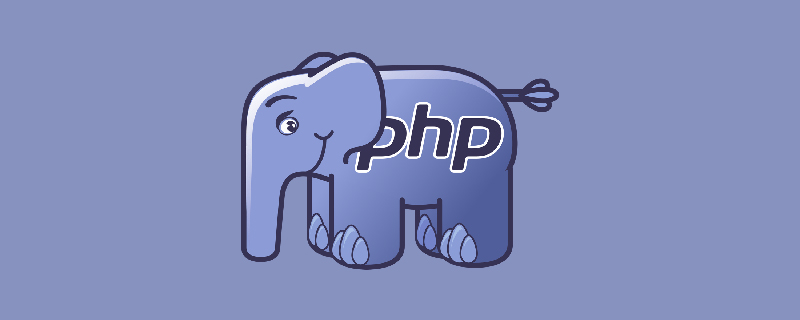
php is an open source general-purpose computer scripting language, especially suitable for network development and can be embedded in HTML. The syntax of PHP draws on the characteristics of popular computer languages such as C language, Java and Perl. Its main goal is It allows web developers to quickly write dynamic pages, but PHP is also used in many other areas.

The operating environment of this article: Windows 7 system, PHP version 7.4, DELL G3 computer
What does php mean?
PHP (full name: PHP: Hypertext Preprocessor, that is, "PHP: Hypertext Preprocessor") is an open source general-purpose computer scripting language, especially suitable for network development and can be embedded in HTML. . The syntax of PHP draws on the characteristics of popular computer languages such as C language, Java and Perl, making it easy for ordinary programmers to learn. The main goal of PHP is to allow web developers to quickly write dynamic pages, but PHP is also used in many other areas.
PHP was originally developed by Lerdorff in 1995; the PHP standard is now maintained by the PHP Group. PHP uses PHP License as the license agreement, but because this agreement restricts the use of the PHP name, it is incompatible with the open source license agreement GPL.
PHP has a wide range of applications, especially in the development of web programs. Generally speaking, PHP is mostly executed on the web server, and the web pages browsed by users are generated by executing PHP code. PHP can be executed on most servers and operating systems. According to statistics in April 2013, PHP has been installed on more than 244 million websites and 2.1 million servers [6].
PHP has a dedicated official porting and compilation project on Windows, and provides different version support through multiple VC compiler versions and thread safety features.
According to W3Techs report, as of September 2021: "78.9% of websites use PHP."
Development History
Zend Technologies One of the founders-Andi Gutmans
One of the founders of Zend Technologies-Zev Suraski
PHP was originally referred to as Personal Home Page[8], which was Rasmus Ledolf In order to maintain personal web pages, some CGI tool assemblies developed in C language were used to replace the Perl programs originally used. Initially these tools were used to display Rasmus Ledolf's personal resume and to count web traffic[9]. He integrated these programs with some form interpreters and called them PHP/FI. PHP/FI can be connected to the database to generate simple dynamic web pages. Rasmus Lerdorf released PHP/FI to the public on June 8, 1995, hoping to speed up program development and find errors through the community [10]. This released version, named PHP 2, already had some of the prototypes of today's PHP, such as Perl-like variable naming, form processing capabilities, and the ability to embed execution into HTML. The program syntax is also similar to Perl, with more restrictions, but it is simpler and more flexible. [
In 1997, two Israeli programmers working at Technion IIT: Zeev Suraski and Andi Gutmans, rewrote PHP's syntax analyzer and became the basis of PHP 3, and PHP was also developed at this time Renamed PHP: Hypertext Preprocessor.[9]. After several months of testing, the development team released PHP/FI 2 in November 1997, then began open testing of PHP 3, and finally officially released PHP 3 in June 1998. Zeev Suraski and Andi Gutmans began to rewrite the core of PHP after the release of PHP 3. The syntax analyzer released in 1999 was called Zend Engine [11]. They also established Zend Technologies in Ramat Gan, Israel, to manage the development of PHP. [9]
On May 22, 2000, PHP 4 based on Zend Engine 1.0 was officially released, and PHP 5 was released on July 13, 2004. PHP 5 used the second generation Zend Engine[9]. PHP 5 includes many new features, such as enhanced object-oriented functions, the introduction of PDO (PHP Data Objects, an extension library for accessing databases), and many performance enhancements [12]. Currently, PHP 4 will no longer be updated to encourage users to move to PHP 5. [13][14]
In 2008, PHP 5 became the only stable version of PHP being maintained.
The first version of PHP 7 was developed on December 3, 2015. It included a large number of performance improvements and also brought some new features, the most noteworthy of which are return value type declarations and scalars. Type declaration (can be used for parameters and return values).
Recommended learning: "PHP Video Tutorial"
The above is the detailed content of php what does it mean. For more information, please follow other related articles on the PHP Chinese website!